- Home
- Jack Higgins
the Last Place God Made (v5) Page 4
the Last Place God Made (v5) Read online
Page 4
'Doesn't anyone have any contacts with them?' 'Only the nuns at the medical mission at Santa Helena and it's a miracle they've survived as long as they have. One of the mining companies was having some trouble with them the other year so they called the head men of the various sub-tribes together to talk things over, then machine-gunned them from cover. Killed a couple of dozen, but they botched things up and about eight got away. Since then it's been war. It's all martial law up there. Not that it means anything. The military aren't up to much. A colonel and fifty men with two motor launches at Forte Franco and that's it.'
I folded the map and shoved it inside my flying jacket. 'From the sound of it, I'd say the Hunas have a point.'
He laughed grimly. 'You won't find many to sympathise with that statement around Landro, Mallory. They're a bunch of Stone Age savages. Vermin. If you'd seen some of the things they've done...'
He walked across to the Hayley, opened the cabin door and climbed inside. When he got out again, he was carrying a shotgun.
'Have you got that revolver of yours handy?' I nodded and he tossed the shotgun to me and a box of cartridges. 'Better take this as well, just in case. Best close-quarters weapon I know; 10-gauge, 6-shot automatic. The loads are double-O steel buckshot. I'd use it on myself before I let those bastards get their hands on me.'
I held it in my hands for a moment, then put it into the rear cockpit. 'Are you flying with me?'
He shook his head. 'I've got things to do. I'll follow in half an hour and still beat you there. I'll give a shout on the radio when I pass.'
There was a kind of boasting in what he said without need, for the Bristol couldn't hope to compete with the Hayley when it came to speed, but I let it pass.
Instead I said, 'Just one thing. As I remember, you need a chain of three men pulling the propeller to start the engine.'
'Not with me around.'
It was a simple statement of fact made without pride for his strength, which as I was soon to see, was remarkable. I stepped up on to the port wing and eased myself into that basket seat with its leather cushions and pushed my feet into the toestraps at either end of the rudder bar.
I made my cockpit checks, gave Hannah a signal and wound the starting magneto while he pulled the propeller over a compression stroke. The engine, a Rolls-Royce Falcon, exploded into life instantly.
The din was terrific, a feature of the engine at low speeds. Hannah moved out of the way and I taxied away from the hangars towards the leeward boundary of the field and turned into the wind.
I pulled down my goggles, checked the sky to make sure I wasn't threatened by anything else coming in to land and opened the throttle. Up came the tail as I pushed the stick forward just a touch, gathering speed. As she yawed to starboard in a slight cross-wind, I applied a little rudder correction. A hundred and fifty yards, a slight backward pressure on the stick and she was airborne.
At two hundred feet, I eased back the throttle to her climbing speed which was all of sixty-five miles an hour, banked steeply at five hundred feet and swooped back across the airfield.
I could see Hannah quite plainly, hands shading his eyes from the sun as he gazed up at me. What happened then was entirely spontaneous: produced by the sheer exhilaration of being at the controls of that magnificent plane as much as by any desire to impress him.
The great German ace, Max Immelmann, came up with a brilliant ploy that gave him two shots at an enemy in a dogfight for the price of one and without losing height. The famous Immelmann Turn, biblical knowledge for any fighter pilot.
I tried it now, diving in on Hannah, pulled up in a half-loop, rolled out on top and came back over his head at fifty feet.
He didn't move a muscle, simply stood there, shaking a fist at me. I waved back, took the Bristol low over the trees and turned up-river.
*
You don't need to keep your hands on a Bristol's controls at cruising speed. If you want an easy time of it, all you have to do is adjust the tailplane incidence control and sit back, but that wasn't for me. I was enjoying being in control, being at one with the machine if you like. Someone once said the Bristol was like a thoroughbred hunter with a delicate mouth and a stout heart and that afternoon over the Negro, I knew exactly what he meant.
On either side, the jungle, gigantic walls of bamboo and liana which even the sun couldn't get through. Below, the river, clouds of scarlet ibis scattering at my approach.
This was flying - how flying was meant to be and I went down to a couple of hundred feet, remembering that at that height it was possible to get maximum speed out of her. One hundred and twenty-five miles an hour. I sat back, hands steady on the stick and concentrated on getting to Landro before Hannah.
*
I almost made it, banking across the army post of Forte Franco at the mouth of the Rio das Mortes an hour and a quarter after leaving Manaus.
I was ten miles upstream, pushing her hard at two hundred feet when a thunderbolt descended. I didn't even know the Hayley was there until he dived on my tail, pulled up in a half-loop, rolled out on top in a perfect Immelmann Turn and roared, towards me head-on. I held the Bristol on course and he pulled up above my head.
'Bang, you're dead.' His voice crackled in my earphones. 'I was doing Immelmanns for real when you were still breastfeeding, kid. See you in Landro.'
He banked away across the jungle where he had told me not to go and roared into the distance. For a wild moment, I wondered if he might be challenging me to follow, but resisted the impulse. He'd lost two pilots already on the Mortes. No sense in making it three unless I had to.
I throttled back and continued up-river at a leisurely hundred miles an hour, whistling softly between my teeth.
FOUR
Landro
I came to Landro, dark clouds chasing after me, the horizon closing in - another of those sudden tropical rainstorms in the offing.
It was exactly as I had expected - a clearing in the jungle at the edge of the river. A crumbling jetty, piroques drawn up on the beach beside it, a church surrounded by a scattering of wooden houses and not much else. In other words, a typical up-river settlement.
The landing strip was at the north end of the place, a stretch of campo at least three hundred yards long by a hundred across. There was a windsock on a crude pole, lifting to one side in a slight breeze and a hangar roofed with corrugated iron. Hannah was down there now with three other men, pushing the Hayley into the hangar. He turned as I came in low across the field and waved.
The Bristol had one characteristic which made a good landing difficult for the novice. The undercarriage included rubber bungees which had a catapulting effect if you landed too fast or too hard, bouncing you back into the air like a rubber ball.
I was damned if I was going to make that kind of mistake in front of Hannah. I turned down-wind for my approach. A left-hand turn, I throttled back and adjusted the tail trimmer. I glided down steadily at just on sixty, selected my landing path and turned into the wind at five hundred feet, crossing the end of the field at a hundred and fifty.
Landing speed for a Bristol is forty-five miles an hour and can be made without power if you want to. I closed the throttle, eased back the stick to flatten my glide and floated in, the only sound the wind whispering through the struts.
I moved the stick back gradually to prevent her sinking and stalled into a perfect three-point landing, touching the ground so gently that I hardly felt a thing.
I rolled to a halt close to the hangar and sat there for a while, savouring the silence after the roar of the engine, then I pushed up my goggles and unstrapped myself. Hannah came round on the port side followed by a small, wiry man in overalls that had once been white and were now black with oil and grease. 'I told you he was good, Mannie,' Hannah said. 'You did indeed, Sam.' His companion smiled up at me. The liking between us was immediate and mutually recognised. One of those odd occasions when you feel that you've known someone a hell of a long time.
Except
for a very slight accent, his English was perfect. As I discovered later, he was fifty at that time and looked ten years older which was hardly surprising for the Nazis had imprisoned him for just over a year. He certainly didn't look like a professor. As I've said, he was small and rather insignificant, untidy, iron-grey hair falling across his forehead, the face brown and wizened. But then there were the eyes, clear grey and incredibly calm, the eyes of a man who had seen the worst life had to offer and still had faith.
'Emmanuel Sterne, Mr Mallory,' he said as I dropped to the ground. 'Neil,' I told him and held out my hand. He smiled then, very briefly and thunder rumbled across the river, the first heavy spots of rain staining the brown earth at my feet.
'Here we go again,' Hannah said. 'Let's get this thing inside quick. I don't think this is going to be any five-minute shower.' He gave a yell and the other two men arrived on the run. They were simply day labourers who helped out with the heavy work when needed for a pittance. Undernourished, gaunt-looking men in straw hats and ragged shirts.
There were no doors to the hangar. It was really only a roof on posts, but there was plenty of room for the Bristol beside the Hayley. We had barely got it in when the flood descended, rattling on the corrugated-iron roof like a dozen machine-guns. Outside, an impenetrable grey curtain came down between us and the river.
Mannie Sterne was standing looking at the Bristol, hands on hips. 'Beautiful,' he said. 'Really beautiful.'
'He's fallen in love again.' Hannah took down a couple of old oilskin coats from a hook and threw me one. 'I'll take you to the house. You coming, Mannie?'
Mannie was already at the engine cowling with a spanner. He shook his head without looking round. 'Later - I'll be along later.'
It was as if we had ceased to exist. Hannah shrugged and ducked out into the rain. I got my canvas grip from the observer's cockpit and ran after him.
The house was at the far end of the field, not much more than a wooden hut with a veranda and the usual corrugated-iron roof. It was built on stilts as they all were, mainly because of the dampness from all that heavy rain, but also in an attempt to keep out soldier ants and other examples of jungle wildlife.
He went up the steps to the veranda and he flung open a louvred door and led the way in. The floor was plain wood with one or two Indian rugs here and there. Most of the furniture was bamboo.
'Kitchen through there,' he said. 'Shower-room next to it. There's a precipitation tank on the roof so we don't lack for a generous supply of decent water, it rains so damn much.'
'All the comforts of home,' I said.
'I would think that something of an overstatement.' He jerked his thumb at a door to the left. 'That's my room. You can share with Mannie over here.'
He opened the door, stood to one side and motioned me through. It was surprisingly large and airy, bamboo shutters open to the veranda. There were three single beds, another of those Indian rugs on the floor and there were actually some books on a shelf beside the only bed which was made up.
I picked one up and Hannah laughed shortly. 'As you can see, Mannie likes a good read. Turned Manaus upside down for that little lot.'
The book was Kant's Critique of Pure Reason. I said, 'This must have been like putting his pan in the river for water and coming up with a diamond.'
'Don't tell me you go for that kind of stuff, too?' He looked genuinely put out. 'God help me, now I do need a drink.'
He went back into the living-room. I chose one of the unoccupied beds, made it up with blankets from a cupboard in the corner, then unpacked my grip. When I returned to the other room he was standing on the veranda, a glass in one hand, a bottle of Gordon's gin in the other.
The rain curtain was almost impenetrable, the first few wooden huts on their stilts at the edge of town, the only other sign of life.
'Sometimes when it gets like this, I could go crazy,' he said. 'It's as if this is all there is. As if I'm never going to get out.'
He tried to re-fill his glass, discovered the bottle was empty and threw it out into the rain with a curse. 'I need a drink. Come on - if you're not too tired I'll take you up town and show you the sights. An unforgettable experience.'
I put on my oilskin coat again and an old straw sombrero I found hanging behind the bedroom door. When I returned to the veranda he asked me if I was still carrying my revolver. As it happened, it was in one of my flying-jacket pockets.
He nodded in satisfaction. 'You'll find everybody goes armed here. It's that kind of place.'
We plunged out into the rain and moved towards the town. I think it was one of the most depressing sights I have ever seen in my life. A scabrous rash of decaying wooden huts on stilts, streets which had quickly turned into thick, glutinous mud. Filthy, ragged little children, many of them with open sores on their faces, played listlessly under the huts and on the verandas above, people stared into the rain, gaunt, hopeless, most of them trapped in that living hell for what remained of their wretched lives, no hope on earth of getting out.
The church was more substantial and included a brick and adobe tower. I commented on that and Hannah laughed shortly. They don't even have a regular priest. Old guy called Father Conte who works with the nuns up at Santa Helena drops in every so often to say a Mass or two, baptise the babies and so on. He'll be coming back with us tomorrow, by the way.'
'You want me to go with you?'
'I don't see why not.' He shrugged. 'It's only a hundred-mile trip. Give you a chance to fly the Hayley. We'll have a passenger. Colonel Alberto from Forte Franco. He'll arrive about ten in the morning by boat.'
'What's he do? Some kind of regular inspection?'
'You could say that.' Hannah smiled cynically. 'The nuns up there are American. Little Sisters of Pity and very holy ladies indeed. The kind who have a mission. Know what I mean? The government's been trying to get them to move for a year or so now because of the way the Huna have been acting up, only they won't go. Alberto keeps trying, though, I'll say that for him.'
In the centre of the town, we came to the only two-storeyed building in the place. The board above the wide veranda said Hotel and two or three locals sat at a table without talking, staring lifelessly into space, rain blowing in on them.
'The guy who runs this place is important enough to be polite to,' Hannah observed. 'Eugenio Figueiredo. He's the government agent here so you'll be seeing a lot of him. All mail and freight has to be channelled through him for the entire upper Mortes region.'
'Are they still keen on the diamond laws as they used to be?' I asked.
'And then some. Diamond prospectors aren't allowed to work on their own up here. They have to belong to an organised group called a garimpa and the bossman holds a licence for all of them. Just to make sure the government gets its cut, everything they find has to be handed over to the local agent who issues a receipt and sends the loot down-river in a sealed bag. The pay-off comes later.'
'A hell of a temptation to hang on to a few.'
'And that draws you a minimum of five years in the penal colony at Machados which could fairly be described as an open grave in a swamp about three hundred miles up the Negro.'
He opened the door of the hotel and led the way in. I didn't care for the place from the start. A long, dark room with a bar down one side and a considerable number of tables and chairs. It was the smell that put me off more than anything else, compounded of stale liquor, human sweat and urine in about equal proportions and there were too many flies about for my liking. There were only two customers. One with his back against the wall by the door, glass in hand, the same vacant look on his face as I had noticed with the men on the veranda. His companion was sprawled across the table, his straw hat on the floor, a jug overturned, its contents dribbling through the bamboo into a sizeable pool.
'Cachaca,' Hannah said. 'They say it rots the brain, as well as the liver, but it's all these poor bastards can afford.' He raised his voice, 'Heh, Figueiredo, what about some service.'
He
unbuttoned his coat and dropped into a basket chair by one of the open shutters. A moment later, I heard a step and a man moved through the bead curtain at the back of the bar.
Eugenio Figueiredo wasn't by any means a large man, but he was fat enough for life to be far from comfortable for him in a climate such as that one. The first time I saw him, he was shining with sweat in spite of the palm fan in his right hand which he used vigorously. His shirt clung to his body, the moisture soaking through and the stink of him was the strongest I have known in a human being.
He was somewhere in his middle years, a minor public official in spite of his responsibilities, too old for change and without the slightest hope of preferment. As much a victim of fate as anyone else in Landro. His amiability was surprising in the circumstances. 'Ah, Captain Hannah.'
An Indian woman came through the curtain behind him. He said something to her then advanced to join us.
Hannah made the introduction casually as he lit a cigarette. Figueiredo extended a moist hand. 'At your orders, senhor.
' 'At yours,' I murmured.
The smell was really overpowering although Hannah didn't appear in any way put out. I sat on the sill by the open shutter which helped and Figueiredo sank into a basket chair at the table.
'You are an old Brazilian hand, I think, Senhor Mallory,' he observed. 'Your Portuguese is too excellent for it to be otherwise.'
'Lately I've been in Peru,' I said. 'But before that, I did a year on the Xingu.'
'If you could survive that, you could survive anything.'
He crossed himself piously. The Indian woman arrived with a tray which she set down on the table. There was Bourbon, a bottle of some kind of spa water and three glasses.
'You will join me senhors?'
Hannah half-filled a sizeable tumbler and didn't bother with water. I took very little, in fact only drank at all as a matter of courtesy which, I think, Figueiredo was well aware of.

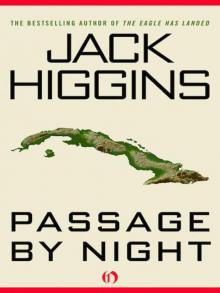 Passage by Night (v5)
Passage by Night (v5)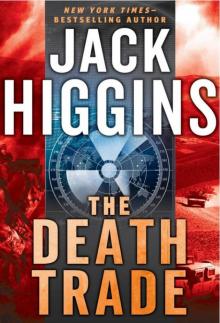 The Death Trade sd-20
The Death Trade sd-20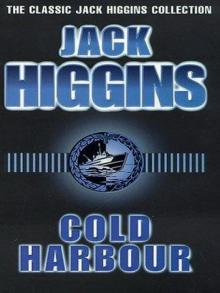 Cold Harbour
Cold Harbour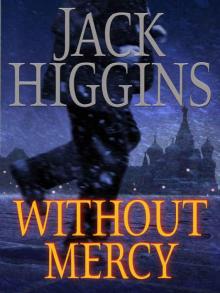 Without Mercy
Without Mercy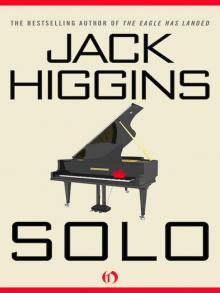 Solo (Aka the Cretan Lover)(1980)
Solo (Aka the Cretan Lover)(1980)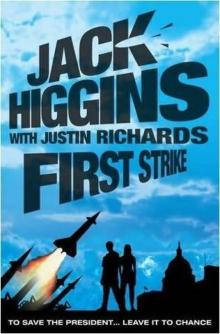 First Strike
First Strike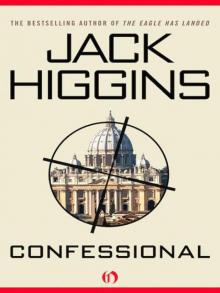 Confessional - Devlin 03 (v5)
Confessional - Devlin 03 (v5)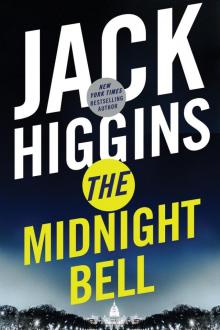 The Midnight Bell
The Midnight Bell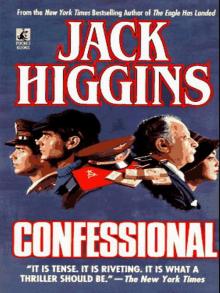 Confessional
Confessional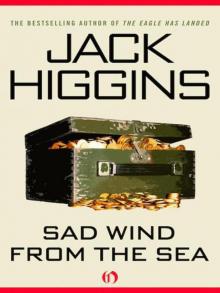 Sad Wind from the Sea (v5)
Sad Wind from the Sea (v5)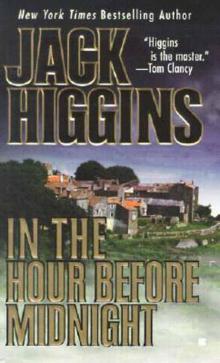 In The Hour Before Midnight aka The Sicilian Heritage
In The Hour Before Midnight aka The Sicilian Heritage Wrath of the Lion
Wrath of the Lion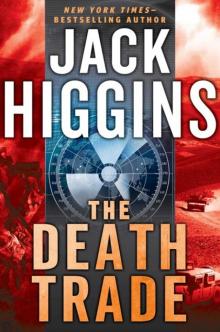 SDillon 20 - The Death Trade
SDillon 20 - The Death Trade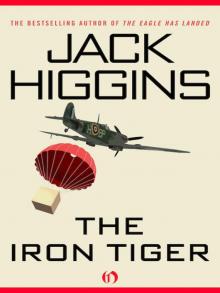 the Iron Tiger (1974)
the Iron Tiger (1974)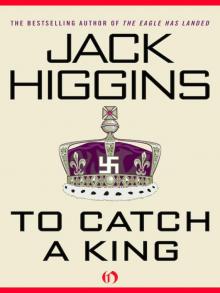 To Catch a King
To Catch a King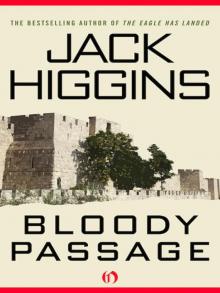 Bloody Passage (1999)
Bloody Passage (1999)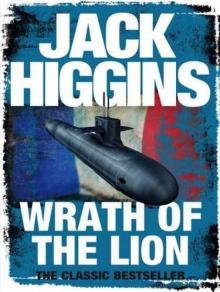 Wrath of the Lion sd-8
Wrath of the Lion sd-8 Sharp Shot
Sharp Shot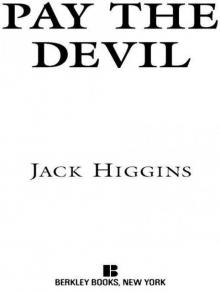 Pay the Devil (v5)
Pay the Devil (v5) A Devil Is Waiting
A Devil Is Waiting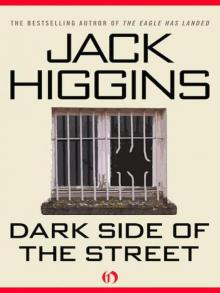 Dark Side of the Street - Simon Vaughn 01 (v5)
Dark Side of the Street - Simon Vaughn 01 (v5)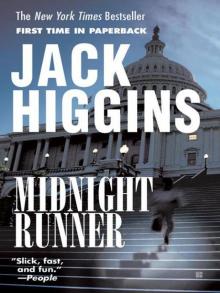 Midnight Runner - Sean Dillon 10
Midnight Runner - Sean Dillon 10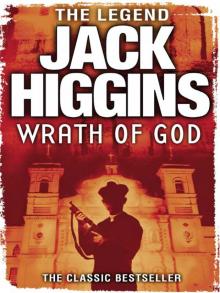 Wrath of God
Wrath of God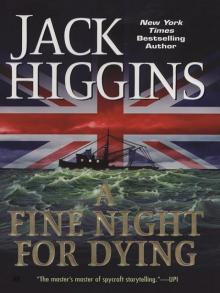 A Fine Night for Dying
A Fine Night for Dying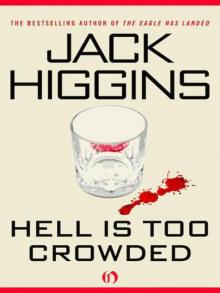 Hell Is Too Crowded v5)
Hell Is Too Crowded v5)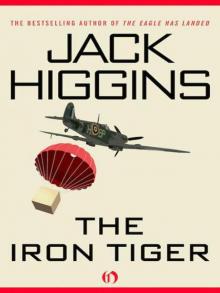 the Iron Tiger (v5)
the Iron Tiger (v5)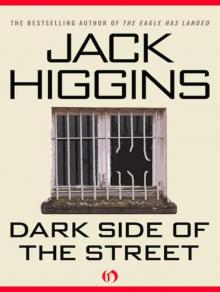 Dark Side of the Street pc-5
Dark Side of the Street pc-5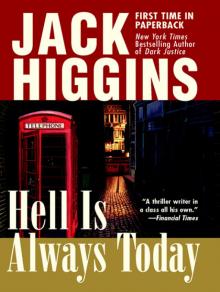 Hell Is Always Today
Hell Is Always Today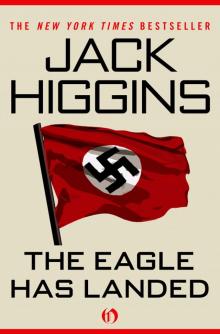 Eagle Has Landed
Eagle Has Landed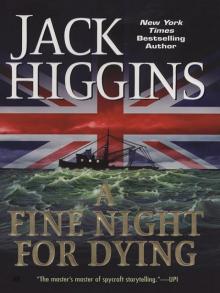 A Fine Night for Dying pc-6
A Fine Night for Dying pc-6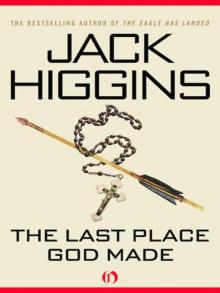 the Last Place God Made (v5)
the Last Place God Made (v5)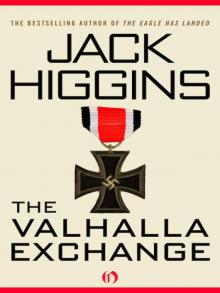 the Valhalla Exchange (1976)
the Valhalla Exchange (1976)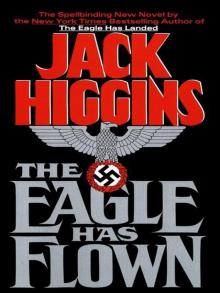 The Eagle Has Flown
The Eagle Has Flown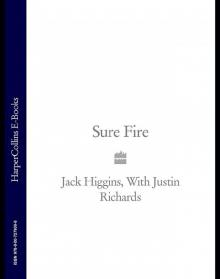 Sure Fire
Sure Fire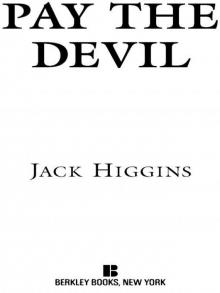 Pay the Devil (1999)
Pay the Devil (1999)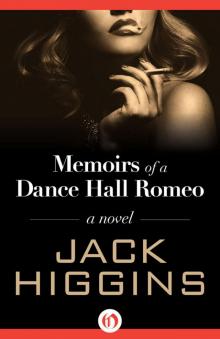 Memoirs of a Dance Hall Romeo
Memoirs of a Dance Hall Romeo![a Prayer for the Dying (1974)[1] Read online](http://i1.bookreadfree.com/i1/04/02/a_prayer_for_the_dying_19741_preview.jpg) a Prayer for the Dying (1974)[1]
a Prayer for the Dying (1974)[1]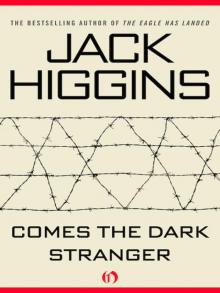 Comes the Dark Stranger
Comes the Dark Stranger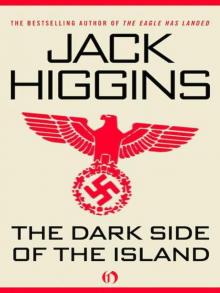 Dark Side Of the Island (v5)
Dark Side Of the Island (v5)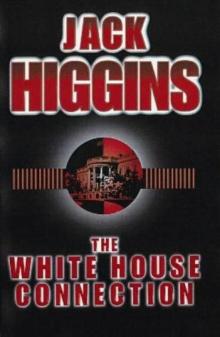 The White House Connection sd-7
The White House Connection sd-7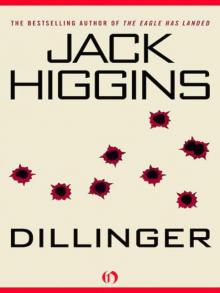 Dillinger (v5)
Dillinger (v5) Eye of the Storm
Eye of the Storm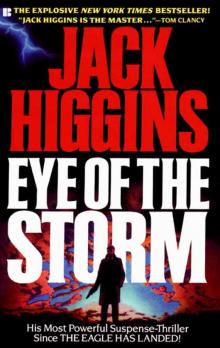 Eye Of The Storm aka Midnight Man
Eye Of The Storm aka Midnight Man A Darker Place
A Darker Place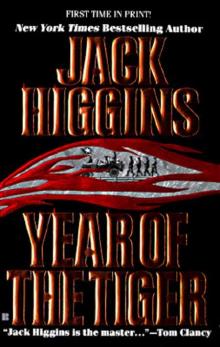 Year Of The Tiger
Year Of The Tiger Death Run
Death Run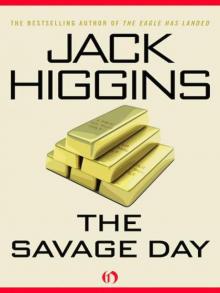 the Savage Day - Simon Vaughn 02 (v5)
the Savage Day - Simon Vaughn 02 (v5)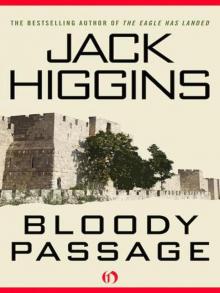 Bloody Passage (v5)
Bloody Passage (v5)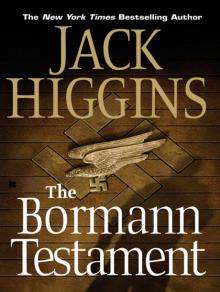 The Bormann Testament
The Bormann Testament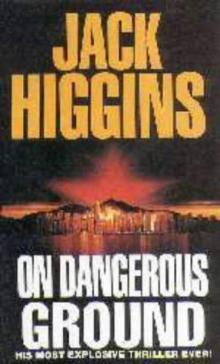 On dangerous ground sd-3
On dangerous ground sd-3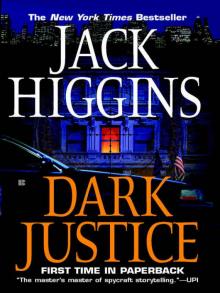 Dark Justice
Dark Justice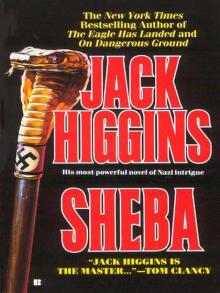 Sheba
Sheba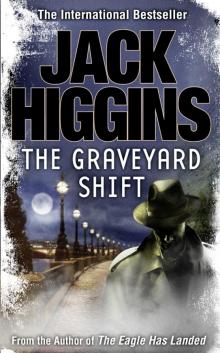 The Graveyard Shift
The Graveyard Shift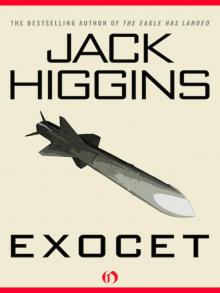 Exocet (1983)
Exocet (1983)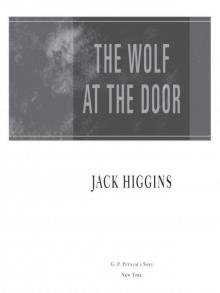 The Wolf at the Door
The Wolf at the Door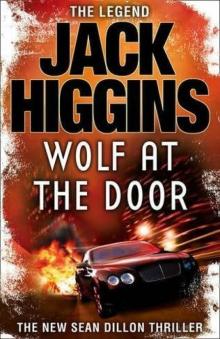 The wolf at the door sd-17
The wolf at the door sd-17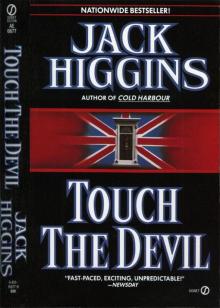 Touch The Devil
Touch The Devil The President’s Daughter
The President’s Daughter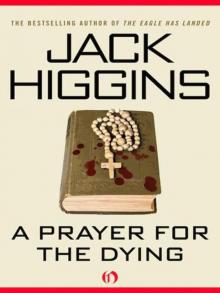 A Prayer for the Dying (v5)
A Prayer for the Dying (v5)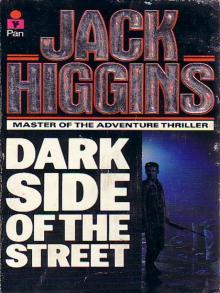 Dark Side Of The Street
Dark Side Of The Street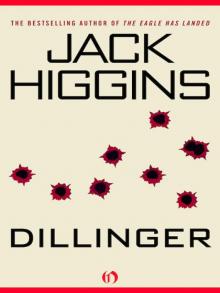 Dillinger (1983)
Dillinger (1983)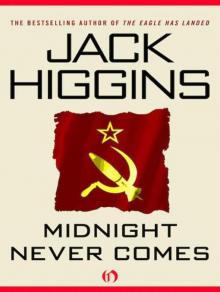 Midnight Never Comes pc-4
Midnight Never Comes pc-4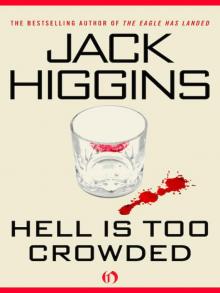 Hell Is Too Crowded (1991)
Hell Is Too Crowded (1991)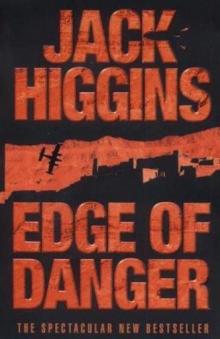 Edge of Danger sd-9
Edge of Danger sd-9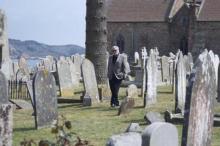 The Thousand Faces of Night (v5)
The Thousand Faces of Night (v5)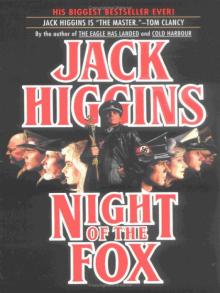 Night Of The Fox
Night Of The Fox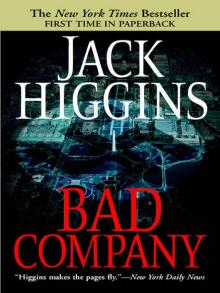 Bad Company
Bad Company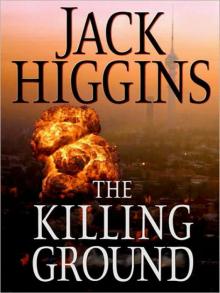 The Killing Ground
The Killing Ground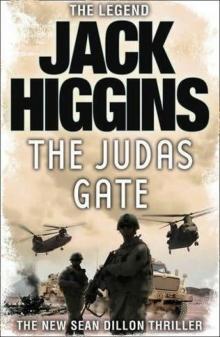 The Judas gate sd-18
The Judas gate sd-18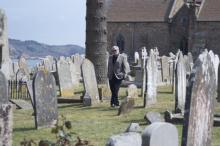 The Thousand Faces of Night (1961)
The Thousand Faces of Night (1961)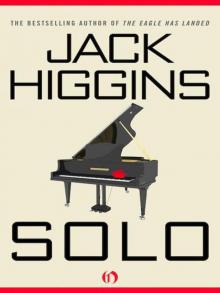 Solo (Aka the Cretan Lover) (v5)
Solo (Aka the Cretan Lover) (v5)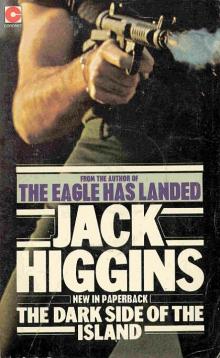 The Dark Side Of The Island
The Dark Side Of The Island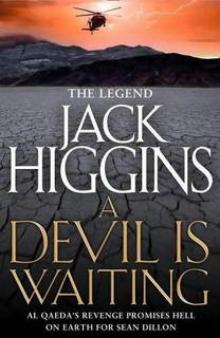 A Devil is vaiting sd-19
A Devil is vaiting sd-19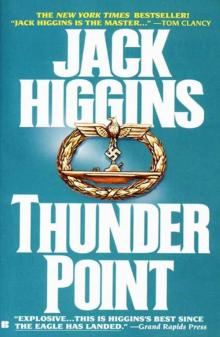 Thunder Point
Thunder Point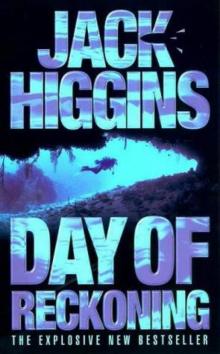 Day of Reckoning sd-8
Day of Reckoning sd-8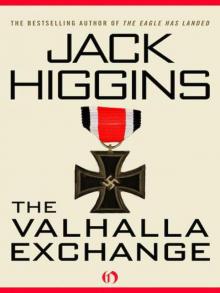 the Valhalla Exchange (v5)
the Valhalla Exchange (v5)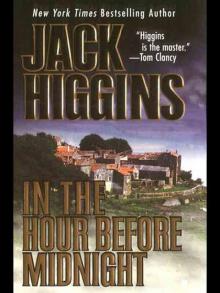 In the Hour Before Midnight
In the Hour Before Midnight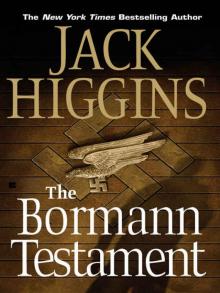 The Bormann Testament (The Testament of Caspar Schultz)
The Bormann Testament (The Testament of Caspar Schultz) The Judas Gate
The Judas Gate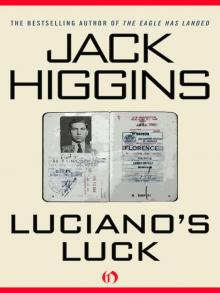 Luciano's Luck
Luciano's Luck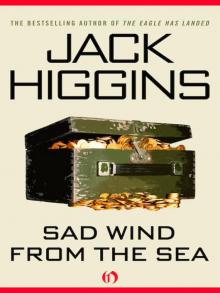 Sad Wind from the Sea (1959)
Sad Wind from the Sea (1959)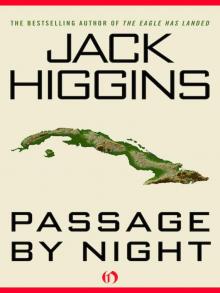 Passage by Night (1987)
Passage by Night (1987)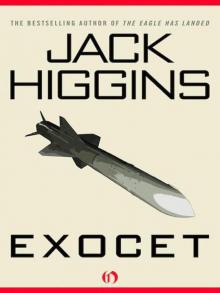 Exocet (v5)
Exocet (v5)